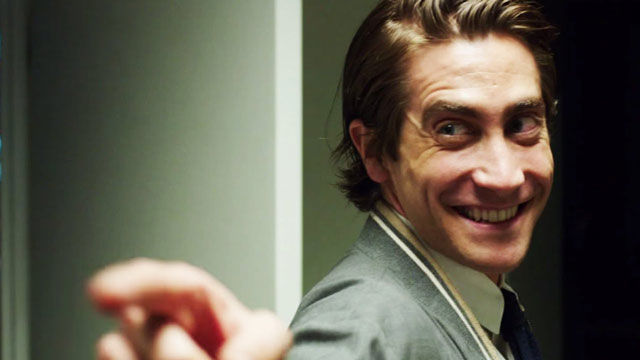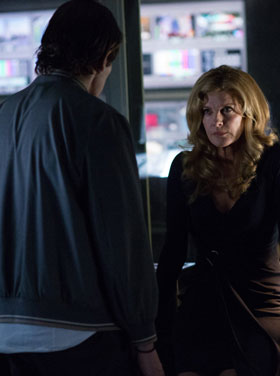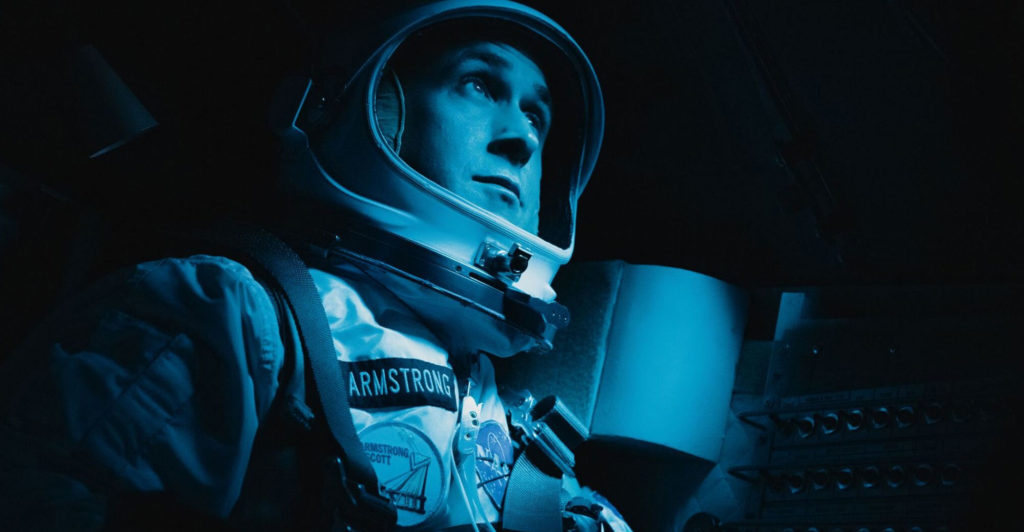
“All the animals come out at night,” said one of cinema’s most memorable misfits in Taxi Driver, and among nocturnal prowlers, few are hungrier, more relentless and more cold-blooded than Nightcrawler’s Lou Bloom. He is smart, ambitious and hardworking. He is also an antisocial creep who won’t let anything or anyone stand in the way of his career goals.
Jake Gyllenhaal’s knockout performance as the amoral, sensation-seeking newsman has earned justified comparisons with Robert de Niro’s breakthrough as Taxi Driver’s Travis Bickle. It’s a career best for the actor, which is no small praise considering his work in films as distinguished and diverse as Jarhead, Donnie Darko, Prisoners and Zodiac.
The gaunt, vampiric Gyllenhaal is Nightcrawler’s focal point as it hurtles down Los Angeles’ highways and slip roads towards its dark destination. We first meet Lou as a hustler making a living selling metal stolen from construction sites to scrapyards. But a chance nighttime encounter with a freelance cameraman filming the grisly aftermath of a car crash inspires Lou to take up a new career in TV news.

He finds a mentor of sorts in Nina Romina (Rene Russo), a news director struggling to hold onto her job at a marginal local TV station. Her specialty is explicit footage of shocking crimes and accidents. Like an ageing, cut-price version of the ruthless TV exec Faye Dunaway played in Network, Nina puts ratings ahead of scruples. The only difference between her and Lou is that he’s willing to get his hands dirty.
“Think of our newscast as a screaming woman running down the street with her throat cut,” Nina tells Lou. He does not disappoint in the extremes he’ll go to bring her graphic visuals of rich crime victims who have fallen prey to gruesome crimes. When the scene isn’t shocking enough, Lou’s not above manipulating it to get a better shot.
Nightcrawler is as pungent, gritty and meaty as the 1970s political satires in the vein of Network and Taxi Driver, and it’s also reminiscent of David Fincher’s urban thrillers The Game and Zodiac. It laces its mordant social commentary with amphetamine, its blend of pulse-pounding thrills and media criticism verging on as lurid as the seedy TV newscasts that it satirises.
Yet Gilroy’s writing is so incisive and dexterous that Nightcrawler manages to be at once entertaining and provocative. His dialogue crackles with nervy energy and acerbic wit, and his plotting is propulsive. For a first-time director working on a limited budget, he delivers an accomplished film with a few astonishing action sequences (a virtuoso car chase is a standout).
Some of the credit for the film’s success must go to acclaimed cinematographer Robert Elswit, who provided his services below his usual rate and persuaded his godson Gyllenhaal to take the lead role. He finds a nightmarish urban desert in the anonymous strip malls and highways of late-night Los Angeles, a landscape far removed from the Hollywood and downtown landmarks usually shown in films.
Watch the trailer:
There’s some good supporting acting, too, including Riz Ahmed as the hapless drifter who Lou recruits to be his intern and Bill Paxton as a grubby rival cameraman. But the film truly belongs to Gyllenhaal as the coyote prowling the neon wilderness for carrion to pick over. Alienated Vietnam vet Travis Bickle was a sociopath for the 1970s; recession survivor Lou Bloom with his grotesque take on the American narrative of self-improvement is one for today.
He speaks in phrases learnt from management gurus and business textbooks, seems to have no human connections, and knows enough about human motivation to manipulate other people. “What if my problem wasn’t that I don’t understand people but that I don’t like them?” he says. Gyllenhaal’s performance is unnerving but magnetic; it’s as hard to look away as it is to watch as Lou keeps breaking through more moral boundaries on his journey from scavenger to predator. — © 2015 NewsCentral Media




